#polyethnic
Text
I don't expect anyone outside of Los Angeles to read the whole annotated transcript of the leaked audio from the private city council members' meeting provided by the LA Times. First of all, it's behind a paywall. Secondly, it's fucking long. But this note from Michael Hiltzik just fucking sums it up so well:
Whether you love, detest or are on the fence about the late Mike Davis, it’s worth noting that in his first book about L.A., the classic “City of Quartz,” he made the point that L.A. had gone from “the most WASPish of big cities in 1960" to one with “more polyethnic diversity than New York, with a huge ... working class of Latinos.”
Davis was hinting at the potential to develop that diversity into a functional, vibrant coalition that would make L.A. “the most dynamic center of ethnic family capitalism on the planet.” My late colleague Jim Flanigan detected the same potential in his coverage of ethnic entrepreneurial communities, especially the Korean community.
Instead, what we see and hear is the fragmentation of what could have been a powerful force. Instead of coming together, these four see ethnic politics as a zero-sum game. That’s the tragedy of this meeting, isn’t it?
#anyhow#this continues to be a fucking bummer#this transcript is worse than i expected#it's not just the casual bigotry#it's the normalization of this us vs. them politics#in the highest echelons of city power#but that could just be my privilege at work#since i don't experience city politics as a person of color#everything in politics is money
16 notes
·
View notes
Text
People don't know this but there are six indigenous republics in the middle of Russia, whose autonomy has been progressively stolen by the Moscow government for decades despite treaties signed guaranteeing their rights. Yes, old-fashioned colonialism is still ongoing today, it's just more difficult to see when there's no ocean inbetween.
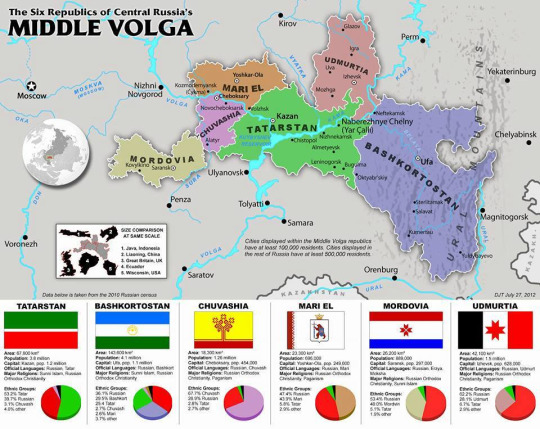

#i know that there are many other like these across the world#and that my own country too engages in neocolonialism#i just want to talk about a little-known but potentially powerful indigenous movement#idel-ural#free idel-ural
2 notes
·
View notes
Text

Week 4: Analyzing Works in Design:
The activity exercised in this week’s class presented an interesting look at typology–how we arrange and determine a preconceived value of an object through its material composition, and yet I felt as though it was lacking in understanding product design.
Simplistic patterns were brought up: function, material, color, value, etc; but to look at only one aspect of an object is to ignore the rest of its process and purpose: the context in which it was created for and exist within, and especially through the lenses of “design”: how it separates its appeal from competitions–the examples taken from our lecture showcased the importance of this understanding.
I feel as though there is a separation between analyzing a design’s appeal (something more akin to Week 3’s exercise) and analyzing its existence. What is the merit of the latter, is it to examine the reasoning of a product’s creation as potential designers ourselves? I look forward to a more critical understanding on this subject.
Week 5: National Museum of Singapore:
I’ve always found museum curation to be an interesting subject–not just in the process of selection for individual art pieces, but to arrange them in a way that serves the purpose of a museum. This is where I find the most difference between an art exhibition and a “National Museum” like the one we visited for this week.
Through colonization and global trades, contemporary Singapore is amongst the most polyethnic locales across the world. This combined with its very recent birth was a constant factor when I strolled across the gallery floor. There are multiple facets to its cultural hotpot, and understanding what is being represented (and what isn’t) is also a factor in the museum’s collective design choice.
Amongst the exhibitions, my interest was placed on the permanent Singapore History Gallery (1), and the Now Boarding showcase. Perhaps it is because of their presented artifacts that makes me feel more immersed, or that they allowed me to focus on the design trends of a period that makes the trip more purposeful. The informative aspect of the trip aside, I enjoyed the reassurance that the appeal of a design is timeless.
(1) National Museum of Singapore . National Heritage Board - Pride in our Past, Legacy for our Future. https://www.nhb.gov.sg/nationalmuseum/whats-on/exhibition/singapore-history-gallery
0 notes
Text

NO LOGO - No diversity
"The branded multinationals may talk diversity, but the visible result of their actions is an army of teen clones marching — in "uniform," as the marketers say -into the global mall. Despite the embrace of polyethnic imagery, market-driven globalization doesn't want diversity; quite the opposite. Its enemies are national habits, local brands and distinctive regional tastes. Fewer interests control ever more of the landscape."
0 notes
Text
Lev Nussimbaum's Blood and Oil in the Orient
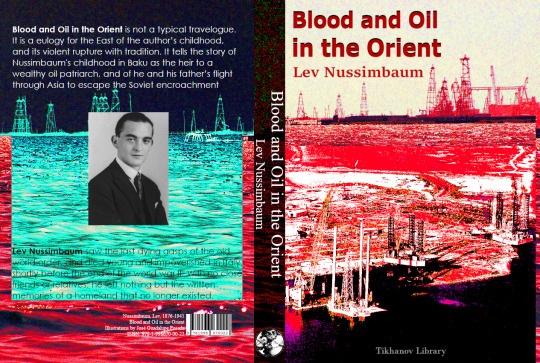
Born in Baku in on October 17, 1905 to a prominent Jewish family of oil barons, Nussimbaum was forced to flee Azerbaijan at the age of 14 to escape the Russian invasion of his country. Fleeing, often on foot, through the polyethnic Caucuses with his father and whatever the two of them could carry, Nussimbaum would eventually find his way to Europe where he settled in Berlin and had a distinguished career as an orientalist in Weimar Germany.
" I was six years old when my oil-baptism, which others did not dare to undergo until they were twenty, took place. The baptism with oil, which was, so to speak, the introduction into the ruling class, was carried out for every new owner and his grown children. It consisted of sprinkling, by means of a tube equipped with a sprayer, great quantities of oil on the new magnate before the assembled workers and officials. This lasted a few minutes, and was called the “Golden Rain.” Sometimes during the extraction of oil, a fine oil-mist came from the derricks. Everyone was glad if the mist fell on his clothes, for the Golden Rain was considered lucky, and the spots which it caused were never wiped away. " -Blood and Oil in the Orient, p.17

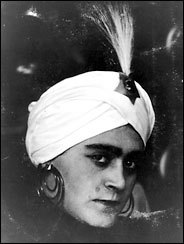
Aside from a prodigious literary output, he found the time to become deeply involved in the politics of his time. He converted to Islam, either in Turkey or Berlin, and helped to found an Islamic student group called Islamia, which quickly disowned him with accusations of not being a "real Muslim." A profile by the New York Herold wrote that he "carries no prayer rug; he fails to salute Mecca when he prays... eats pigs and drinks wine; yet when he came to be married in Berlin he refused to abjure his creed." Despite this he never renounced his Islamic faith, and published a number of books and essays about Islam and the Prophet Mohamed. He had several high profile affairs with wealthy German and American women. Briefly moved to the United States. Was involved in the German-Russian League Against Bolshevism, the Social Monarchist Party, and the Young Russian Movement. His anti Bolshevik credentials were so strong that the Nazi propaganda minister even included several of his books in their list of "excellent books for German minds", which is no small achievement for a Jewish refugee-turned Muslim revert. Sadly his Jewish background did eventually make him a target of suspicion by the Nazis, and he was forced to flee to Italy.
Blood and Oil tells the story of his childhood in Baku and of he and his father’s flight through Asia to escape the Soviet encroachment, travelling West through Persia and the Ottoman Empire before finally settling in Germany. Along the way he meets a broad cast of characters, and describes the tapistry of ethnic groups which make up the Caucuses. From the Jassaians, a people who do not work as a matter of tradition; to the Khevsureti, a long lost army of German crusaders who intermarried with local Caucasian women, to the wild mountain Jews who are so ancient that any trace of where they came from has long been lost to time. Lev Nassibaum saw the last dying gasps of the old world order, and died young and impoverished in Italy shortly before the end of the World War II. With no close friends or relatives, he left nothing but the written memories of a homeland that no longer existed.

#russia#communism#monarchism#monarchy#essad#bey#lev#nussibaum#orient#blood#and#oil#caucus#caucasian#adventure#bookblr#book#novel#novella#azerbaijan#persia#iran#middle east#islam#jew#1940s#1920s#Ottoman#weimar#weimar germany
0 notes
Text
**ATTENTION LADIES AND GENTLEMAN - COMPATRIOTS OF THE EASWEGIAN COMMON UNION, CHILDREN OF THE OUROBOROS, HEIRS OF BORIOPA!**


By a margin of 91%, the people of Easway have today, 17 July 2023, voted to incorporate the Associated Community of Vardø Town Islands as a free governing area of the Pomors Frontier and Finnmark. The Co-operative Government wishes the most mutual forms of co-operation when and where possible in the Barents region with our closest neighbours to our south, Norway.
This is why we are reclaiming our cultural heritage whilst establishing condominium status. Easway shall secure our sovereignty, but the wellbeing of all shall always be ensured by ourselves. We have always been one polyethnic nation.
**The National Directorate is strengthened.**
There is no more split cabinet, no more confusion in duties. The ministries of home affairs and finance & economics have been transfered into its cabinet. I as Grand Councillor shall not be a member, but shall oversee meetings and act in an advisory capacity, whilst the General Director chiefly heads government, alongside an equal cabinet of many portfolios.
Today, Easway becomes stronger. Today, Easway becomes more unified. Today, Easway shows that we are a nation of brilliant families and friends, brilliant artists, tradesmen and workers. Our Easwegian spirit shall travel further than anyone could ever in one lifetime. Together, we can achieve anything that our indomitable willpower and common unity strives for.
Easway forever! Our people always.
https://docs.google.com/document/d/1s78IuYYvO5H3XuDKwiXx0lTfUA5wYJKcPnNfRyjI5Cc/edit?usp=drivesdk
0 notes
Text
The Newest Poet Laureate of the USA, number 24: Ada Limón!
The Newest Poet Laureate of the USA, number 24: Ada Limón!
The Newest Poet Laureate of the USA, number 24: Ada Limón!
Photo of Ada Limón by Shawn Miller for the Library of Congress
Limón is the first female U.S. poet laureate of Latino and Mexican American heritage to be so honored. Born and raised in Sonoma, California (in the North Bay area of San Francisco, where I used to live!), she self-describes as “polyethnic.” In the bio from Sandra Lilley,…

View On WordPress
0 notes
Text
The US’ Attempt to ‘Decolonize Russia’ Will Hit Itself as a Boomerang
— Edvard Chesnokov | July 04, 2022
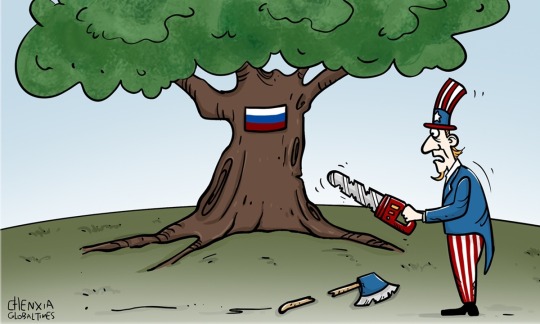
Illustration: Chen Xia/Global Times
In Russian, the word "temnik" refers to when authorities covertly send out instructions on how the media should expose this or that story. As a result, an everyday reader is surrounded by multiple polyphonic messages painting this story with a monophonic color.
A vivid example of such tactics took place in 2018, when American newspapers began to spread a biased Sinophobic agenda prior to the White House unleashing its faithless anti-Chinese trade war.
Just now, I'm observing a similar Washington Temnik aimed at Moscow. With US sanctions having failed to disrupt the Russian economy - as I wrote in my GT column last month, entitled, "US tries to hit Russia with severe sanctions, but fails" - Uncle Sam summons another demon.
From April to June 2022, dozens of American media and netizens have simultaneously started to share the same narrative. It is called "the decolonization of Russia." Bloomberg, The Atlantic, various blogs, and think tanks are singing with a single voice: Russia is an Evil Empire oppressing ethnic minorities, and the only way to make it democratic is to dissolve the country within the internal borders of its regions, as the Soviet Union had been.
Eventually, on June 23 - simulating a natural public concern that the authorities have to react to - the US Commission on Security and Cooperation in Europe held a conference with the unsurprisingly same title: "the decolonization of Russia."
At this point, I recall the Russian pro-Western liberal opposition repeating: "There is no evidence that Washington wants to dissolve Russia." No, no, definitely there isn't - except this Commission which is the official body of the US government.
Perhaps my opponent would reply that such a hostile US agenda is just retaliation to recent "Russian aggression" - a narrative the West constantly uses while invading Libya, Iraq, Afghanistan, and other sovereign countries.
Okay, let's take the 1990s: after the Soviet Union collapsed, Russia was extremely sick and overwhelmingly pro-Western. The then-Russian minister of foreign affairs sought only a joint photo with the US Secretary of State instead of protecting our national interests.
Despite that, America still welcomed the possibility of further disintegration of Russia. In the mid-1990s, in Chechnya, a mountainous Russian region, separatists had gained power and unleashed a bloody war. Our people called them "Chechen gangs," but in fact, lots of them were nationless foreign terrorists linked to Al-Qaeda.
The US media referred to these slaughterers as "rebels" or "freedom fighters." Former and incumbent DC officials expressed their support and met their representatives. Moreover, the terrorists that acted in the Russian Caucasus mountains openly deployed their training and recreation camps in the Pankisi Gorge of neighboring Georgia, a country which was extremely pro-American at that time.
Of course, the real reason for such policy is not the US' concern about democracy - either in Russia, China, or any other pro-multilateral country - but its desire to maintain global dominance at any cost, including sucker punching.
Now, as its last hope, the US tries to mount its "decolonization of Russia" agenda. I don't know why the Russian policy advisors of Washington had chosen such an absurd strategy; unless the only info about Russia they have is the propaganda in their own media.
Similar to the US, Russia is a polyethnic and multireligious country from ocean to ocean, with various historical issues previously in acquiring its parts. Perhaps US politicians who have gotten used to the only example of state-building - their own - really think that other countries impose the same model: permanent wars of conquest, institutional racial discrimination, and genocide of ethnic minorities such as Indians during the most of national history.
Why do I waste my time opposing this ridiculous "decolonization of Russia" concept which is as bogus as their "Saddam chemical weapons" claims? The reason is that the possible dissolution of the US - the nuclear country with 200 million guns in its arms - can bring much more damage than even the Soviet Union collapse did. Because, as we see, all the American policy causes a boomerang effect.
Over the past two decades, the White House promised to destroy terrorism and build democracy in Afghanistan. Instead, after the American rule, this country was totally erased; in Washington itself, democracy fails, and domestic terrorism rises - remember the 2021 US Capitol storming.
In recent years, the US promised to destroy the Russian economy with sanctions - and now its own inflation, fuel crisis, and food shortages have reached historical highs.
Presently in the last few weeks, the US was promising to "decolonize Russia" - but now its own Texas is planning to hold a referendum of independence.
On the other hand, why does Russia stand for multilateralism and equality on the world stage? Because it has successfully imposed the same order on its own territory.
Precisely, let's take the above-mentioned Chechnya: within modern Russia, it has its own military units, its own Muslim-based traditions, and the widest range of autonomy. Despite that, Chechen troops are a notable part of the Russian army and conduct anti-terroristic strikes for the Russian national interests.
So now you know why the US stands for its dominance in the world: on the outer stage, it just reflects its indoor "melting pot" model, which leads to the supremacy of a single - American - culture. And who is the real colonialist, thus - the answer is obvious.
— The author is an Adjunct Professor at the Far Eastern Federal University in Vladivostok, Russia.
0 notes
Photo
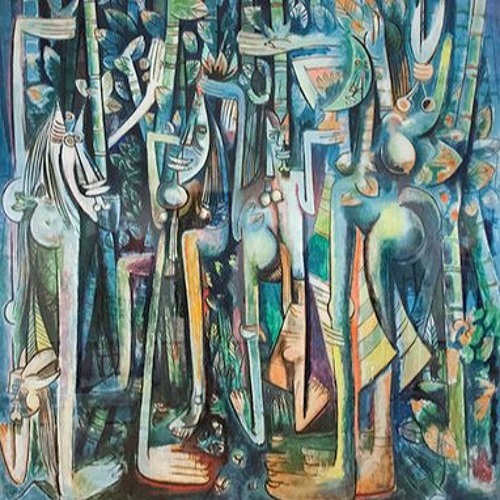
Trippin' in the Jungle / Polyethnic House Mix / March 2019 by Tomy Jama https://ift.tt/2CrW0SS
0 notes
Photo

#Repost @thepolyethnicpublishing (@get_repost) ・・・ Hey guys! The Polyethnic Publishing (@thepolyethnicpublishing) is looking for a team of 100 bookworms to add into our review team. If you love getting free books in exchange for a review, let us know down in the comments! To be eligible, please follow these simple steps: 1. Follow us and our founder @melidite 2. Tag 3 or more bookworms below 3. What format do you prefer reading the ARCs? Paperback, Hardcover, ebook (kindle, iBook, nook, etc.) 4. What city/country will you be representing? 5. Repost and share! #thepolyethnic 6. ***Where do will you post your reviews? Do you have a Goodreads and or blog?*** #polyethnic
0 notes
Quote
I'm put in mind of the Joker making a billion dollars on a $50 million arthouse movie basically by saying "Weird white men are suffering and angry." So much effort in our culture war goes towards stomping out this noisome weed of truth, and yet as soon as it finds a bit of light and air it sprouts into a 50 foot tall moneytree.
Conversely, the message of the Star Wars sequels - Weird white men are horrific monsters and also at the same time ineffectual babies, it is the duty of white women and their dutiful polyethnic followers to oppose, destroy, and replace them - needs to be wrapped in the hacked off skin of Star Wars to get people to watch it, and even then nobody buys the merch or toys. And the polyethnic followers are so bland and uninspiring that everyone ships the white woman with the weird white guy.
I don't know if art is the superweapon that unseats regimes, but I do agree that ideologues tend to make bad art and that this is one thing that hurts them.
questor debestor
67 notes
·
View notes
Note
How do you feel about this. Recently army was trending this army account that was saying racist stuff about blacks and were upset at those who followed them but when I asked why they aren’t upset at BTS affiliation with MULTIPLE RACIST ARTISTS they had nothing to say. They don’t want any army affiliated with a racist person yet this is what BTS does all the time and me being black, I’m honestly very offended by this. It makes me think BTS doesn’t care for blacks going through racism
So first off, I think your feelings are completely valid. I don’t actually think I’m qualified to pass judgement on any specific anti blackness racism issue as a non black individual. I’m not going to tell you how to feel or what should and should not offend you in this matter.
What I can say is that BTS are not involved in what those ‘multiple racist artists’ have done even through business affiliation. H*lsey, one of their ‘closest’ collaborators, tweeted racist tweets against Asians. I don’t think that means they don’t care about the racism Asian’s face? I mean they are literally Asians, it’d only hurt them. To me it looks like they just don’t know it happened and if they did, they probably don’t understand why it’s problematic as they aren’t fully educated on the politics of a polyethnic society. This can go for multiple artists they have worked with.
In simpler terms, I think international ARMYs tend to forget that this band is Korean and we just push sort of a western mindset onto them. And when I refer to this mindset, I mean we think they should know everything we know. I don’t think Korean news sites are out here writing about which American celebrity is racist or even talking about different types of racism. Not when Namjoon had to go out there and explain to them about the usage of the N word. And if the media isn’t covering it, no one’s being educated on it because no Korean is reading TMZ to find out which celeb has just been #cancelled. Again, not because they don’t care but because it has nothing to do with their own politics. They are what could be considered as a monoethnic society and so they wouldn’t understand the problems a minority would face (including us Asian Americans) unless they come to the west and experience it for themselves lmao
None of this is done on purpose. It’s like how your average American wouldn’t know what Dokdo or the rising sun flag are and why it is so culturally significant for Koreans. But I do completely understand why you would feel defensive over this situation. Woke politics may not be, but anti blackness is a worldwide issue and there should be no excuse for it. In my opinion, I don’t think BTS doesn’t care about the discrimination any race might face. There is just a lot of miscommunication and a disconnect that occurs when the west and east meet.
I can also add in that I’m being as unbiased as possible because BTS actually collaborated with someone who made very disturbing claims against my group of people (don’t want to go into it for privacy reasons) and even though I didn’t personally hold that against them, I know how you feel and I see why it upsets you. I hope you can understand the point I’m trying to make and the difference between an obviously educated western account relating the corona virus to anything Asian and BTS collaborating with someone because of music. But if there’s something I didn’t address or something that doesn’t make sense above, please let me know.
#they are put on this pedestal i think#they just have to be each individual's definition of perfect at all times#R:Ask#anon#mp;discourse
3 notes
·
View notes
Video
youtube
colbruce #youtuber Hoodoo Bash Leftover Salmon Hillberry 15 Vince improvs hilarious vocals best stage presence frontman - Polyethnic cajun slamgrass @LeftoverSalmon music ♫ pets § nature ◢ Fire Spinners ◣ #HILLBERRY 10-18-2015 video recordings @ dgold © now radio producer podcast editor sharing out bluegrass festival sound collection. More songs +movies GO: http://youtube.com/colbruce channel. #LOS #LeftoverSalmon #HillberryFest Gold YouTuber Update ❤︎ Stay Tuned ☺︎ twitter dgold 💛 youtube colbruce 👀 ❤︎ ☺︎ 💛💛💛💛 👀 file name: LeftoverSalmon 2015 10 18 HoodooBash Hillberry Vince Improv VersionIMG 3073 video post September 15, 2019 at 03:30PM
1 note
·
View note
Photo
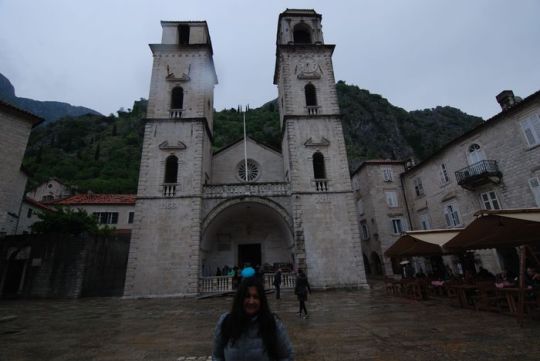
Balkan affairs in this period
Bit by bit, we hear more often from the sources for Balkan affairs in this period a word that begins to take shape as a name we know: Slavs. Old maps and histories show Slavs as invaders, but now we recognize them as a people that emerged and shaped itself by virtue of its proximity to Rome and also by Rome’s resistance to its presence. The Slavs’ language (the ancestor of the Slavic tongues) was not independent, but a lingua franca, a frontier argot common to a mixture of people who came to live in proximity to one another. We first hear of these people in the year 527, in exactly the area across the Danube that provided the most soldiers for Justinian’s armies later going to Italy. Coin hoards found there show that the people were in regular commercial touch with the Roman empire during the reigns of Anastasius and Justin. It was convenient for Roman observers to give them a name and to portray them ill, but they were a very Roman phenomenon.
Justinian would go back
Time and again, Justinian would go back to this well looking for soldiers, to build forces to march against the Persians, the Africans, the Italians, and the Spaniards. While doing this, he treated the local disturbances of the Balkan region as a matter of little importance, at least at first. He also saw the region as a place where he could manipulate the local peoples to play them off against each other and keep the peace at low cost to himself. So, for example, when he found the Lombards (their name comes through Latin from a Germanic word for “long-beards”) pressing on his own forces, he suborned them to move west, up the Danube valley, to take on the Gepids, flourishing then in the vicinity of modern Budapest. The success of those Lombards resembles the success that Ronald Reagan had in supporting the mujahideen of Afghanistan, not foreseeing the role they would play as members of the Taliban years later. So too the Lombards, emboldened, enriched, and entrenched, would produce the invading bands that came to plague post-reconquest Italy for Justinian’s successors and victims, making peace and order in that province impossible for many years. (These Lombards were the usual polyethnic mix, including Saxons, Bulgars, Sarmatians, Pannonians, Suebians, Noricans, and others. It is no wonder that they would fail to create a united kingdom when they arrived in Italy.21)
Worse was to come. Justinian sought soldiers across the Danube, but was unhappy when people there showed signs of organization, ambition, and military prowess—in other words, when they came to resemble Rome itself. Limited in resources, knowing full well that he could not in the midst of his other diversions spare forces to cross the river and pacify territory that had always eluded direct Roman control, he chose a short-term strategy: fortification. He made the Danube what it had never been before, a fortified dividing line between the inside and the outside of empire bulgaria vacation.
Bulgaria and Romania
He built forts along the lower lengths of the river, where Bulgaria and Romania face each other east of the Iron Gate that separates the central Balkans from the lower Danube valley. Now Roman soldiers treated the river as a boundary they protected but did not cross, and so abandoned the other side to hostile and almost entirely unobserved forces. Periodic breaches of this barrier, for example by the Cotrigur Huns—not themselves native to the border region—in 538 and 558, only reassured Justinian that resistance and fortification were the right policy. He never thought that those Huns had been encouraged and aided in making their way against him by the very peoples he despised, excluded, and set against himself: those longer- settled populations genuinely native to the area.
None of his precautions made the difference Justinian hoped for. His string of small forts, with a few hundred soldiers in each, hanging back from the Danube itself on the more easily fortified higher ground of the Stara Planina (the Balkan Mountains), made a fine show of repelling the feared hordes but had little effect. Trade was largely interrupted, but recruits still came south across the river to join Roman forces, and in the meantime communities of the newly isolated and rejected peoples grew in size and self-consciousness.
0 notes
Photo
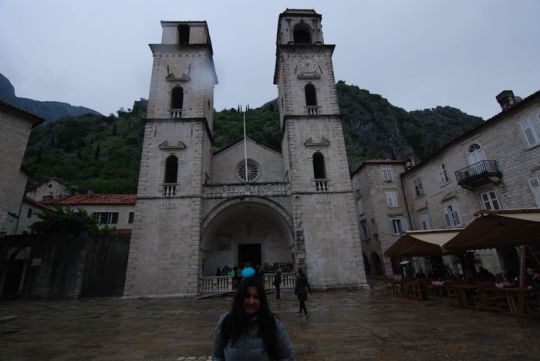
Balkan affairs in this period
Bit by bit, we hear more often from the sources for Balkan affairs in this period a word that begins to take shape as a name we know: Slavs. Old maps and histories show Slavs as invaders, but now we recognize them as a people that emerged and shaped itself by virtue of its proximity to Rome and also by Rome’s resistance to its presence. The Slavs’ language (the ancestor of the Slavic tongues) was not independent, but a lingua franca, a frontier argot common to a mixture of people who came to live in proximity to one another. We first hear of these people in the year 527, in exactly the area across the Danube that provided the most soldiers for Justinian’s armies later going to Italy. Coin hoards found there show that the people were in regular commercial touch with the Roman empire during the reigns of Anastasius and Justin. It was convenient for Roman observers to give them a name and to portray them ill, but they were a very Roman phenomenon.
Justinian would go back
Time and again, Justinian would go back to this well looking for soldiers, to build forces to march against the Persians, the Africans, the Italians, and the Spaniards. While doing this, he treated the local disturbances of the Balkan region as a matter of little importance, at least at first. He also saw the region as a place where he could manipulate the local peoples to play them off against each other and keep the peace at low cost to himself. So, for example, when he found the Lombards (their name comes through Latin from a Germanic word for “long-beards”) pressing on his own forces, he suborned them to move west, up the Danube valley, to take on the Gepids, flourishing then in the vicinity of modern Budapest. The success of those Lombards resembles the success that Ronald Reagan had in supporting the mujahideen of Afghanistan, not foreseeing the role they would play as members of the Taliban years later. So too the Lombards, emboldened, enriched, and entrenched, would produce the invading bands that came to plague post-reconquest Italy for Justinian’s successors and victims, making peace and order in that province impossible for many years. (These Lombards were the usual polyethnic mix, including Saxons, Bulgars, Sarmatians, Pannonians, Suebians, Noricans, and others. It is no wonder that they would fail to create a united kingdom when they arrived in Italy.21)
Worse was to come. Justinian sought soldiers across the Danube, but was unhappy when people there showed signs of organization, ambition, and military prowess—in other words, when they came to resemble Rome itself. Limited in resources, knowing full well that he could not in the midst of his other diversions spare forces to cross the river and pacify territory that had always eluded direct Roman control, he chose a short-term strategy: fortification. He made the Danube what it had never been before, a fortified dividing line between the inside and the outside of empire bulgaria vacation.
Bulgaria and Romania
He built forts along the lower lengths of the river, where Bulgaria and Romania face each other east of the Iron Gate that separates the central Balkans from the lower Danube valley. Now Roman soldiers treated the river as a boundary they protected but did not cross, and so abandoned the other side to hostile and almost entirely unobserved forces. Periodic breaches of this barrier, for example by the Cotrigur Huns—not themselves native to the border region—in 538 and 558, only reassured Justinian that resistance and fortification were the right policy. He never thought that those Huns had been encouraged and aided in making their way against him by the very peoples he despised, excluded, and set against himself: those longer- settled populations genuinely native to the area.
None of his precautions made the difference Justinian hoped for. His string of small forts, with a few hundred soldiers in each, hanging back from the Danube itself on the more easily fortified higher ground of the Stara Planina (the Balkan Mountains), made a fine show of repelling the feared hordes but had little effect. Trade was largely interrupted, but recruits still came south across the river to join Roman forces, and in the meantime communities of the newly isolated and rejected peoples grew in size and self-consciousness.
0 notes
Photo
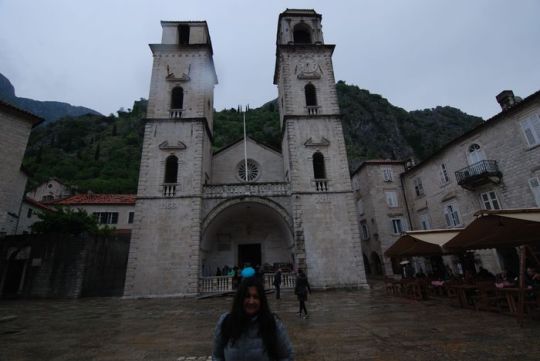
Balkan affairs in this period
Bit by bit, we hear more often from the sources for Balkan affairs in this period a word that begins to take shape as a name we know: Slavs. Old maps and histories show Slavs as invaders, but now we recognize them as a people that emerged and shaped itself by virtue of its proximity to Rome and also by Rome’s resistance to its presence. The Slavs’ language (the ancestor of the Slavic tongues) was not independent, but a lingua franca, a frontier argot common to a mixture of people who came to live in proximity to one another. We first hear of these people in the year 527, in exactly the area across the Danube that provided the most soldiers for Justinian’s armies later going to Italy. Coin hoards found there show that the people were in regular commercial touch with the Roman empire during the reigns of Anastasius and Justin. It was convenient for Roman observers to give them a name and to portray them ill, but they were a very Roman phenomenon.
Justinian would go back
Time and again, Justinian would go back to this well looking for soldiers, to build forces to march against the Persians, the Africans, the Italians, and the Spaniards. While doing this, he treated the local disturbances of the Balkan region as a matter of little importance, at least at first. He also saw the region as a place where he could manipulate the local peoples to play them off against each other and keep the peace at low cost to himself. So, for example, when he found the Lombards (their name comes through Latin from a Germanic word for “long-beards”) pressing on his own forces, he suborned them to move west, up the Danube valley, to take on the Gepids, flourishing then in the vicinity of modern Budapest. The success of those Lombards resembles the success that Ronald Reagan had in supporting the mujahideen of Afghanistan, not foreseeing the role they would play as members of the Taliban years later. So too the Lombards, emboldened, enriched, and entrenched, would produce the invading bands that came to plague post-reconquest Italy for Justinian’s successors and victims, making peace and order in that province impossible for many years. (These Lombards were the usual polyethnic mix, including Saxons, Bulgars, Sarmatians, Pannonians, Suebians, Noricans, and others. It is no wonder that they would fail to create a united kingdom when they arrived in Italy.21)
Worse was to come. Justinian sought soldiers across the Danube, but was unhappy when people there showed signs of organization, ambition, and military prowess—in other words, when they came to resemble Rome itself. Limited in resources, knowing full well that he could not in the midst of his other diversions spare forces to cross the river and pacify territory that had always eluded direct Roman control, he chose a short-term strategy: fortification. He made the Danube what it had never been before, a fortified dividing line between the inside and the outside of empire bulgaria vacation.
Bulgaria and Romania
He built forts along the lower lengths of the river, where Bulgaria and Romania face each other east of the Iron Gate that separates the central Balkans from the lower Danube valley. Now Roman soldiers treated the river as a boundary they protected but did not cross, and so abandoned the other side to hostile and almost entirely unobserved forces. Periodic breaches of this barrier, for example by the Cotrigur Huns—not themselves native to the border region—in 538 and 558, only reassured Justinian that resistance and fortification were the right policy. He never thought that those Huns had been encouraged and aided in making their way against him by the very peoples he despised, excluded, and set against himself: those longer- settled populations genuinely native to the area.
None of his precautions made the difference Justinian hoped for. His string of small forts, with a few hundred soldiers in each, hanging back from the Danube itself on the more easily fortified higher ground of the Stara Planina (the Balkan Mountains), made a fine show of repelling the feared hordes but had little effect. Trade was largely interrupted, but recruits still came south across the river to join Roman forces, and in the meantime communities of the newly isolated and rejected peoples grew in size and self-consciousness.
0 notes